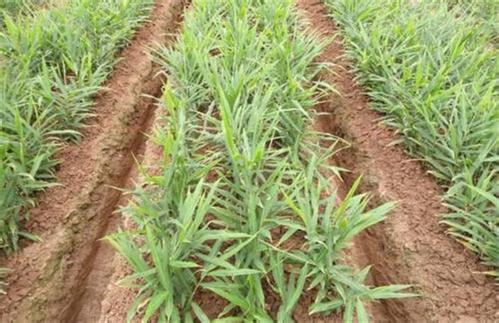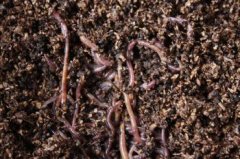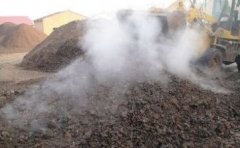How to fertilize the soil: the main source of crop nutrients and the key points of land fertilization management
Fertilizer management: to achieve the goal of sustainable agricultural production, to make nature circulate continuously and live forever. This is the ecological balance we need to achieve. The main significance of fertilizer management in sustainable agriculture is to use non-energy-consuming natural materials to supply crop nutrients, to improve the soil environment for crop growth and to pay attention to fertilization techniques. We not only talk about ecological and environmental protection, but also have something to gain from it. This is what we want to see.

Source of crop nutrients
Plant nutritionists have found that the necessary nutrient elements for most plants are: carbon, hydrogen, oxygen, nitrogen, phosphorus, potassium, calcium, magnesium, sulfur, iron, manganese, boron, copper, molybdenum and chlorine, among which carbon, hydrogen and oxygen can be fully supplied by air and water. Plants are not in need, and the rest of the nutrients mainly come from soil minerals, soil organic matter and artificial fertilizers. Soil minerals and soil organic matter release most of the nutrients needed by plants through the physical, chemical and biological processes of nature. However, if long-term cultivated crops do not supplement fertilizers, the nutrients released by the soil will not be enough for crops, so cultivated crops still need to apply fertilizers.
Sustainable agriculture emphasizes soil conservation so that the plant nutrients contained in the soil can be brought into full play, and organic matter and natural ores containing plant nutrients outside the farm are used as fertilizers to supplement crop nutrients. Common materials such as green manure crops, livestock manure, phosphate rock, limestone and so on are available materials, in fact, there are many kinds, as long as there is no need to consume a lot of energy to purify and concentrate. And the natural substances without the risk of soil pollution can be used in the fertilization of sustainable agriculture.
Key points of fertilizer management
Improve the soil environment and maintain the soil
There are many environmental factors that affect crop production, which can be divided into climate and soil. If climate factors are not mentioned, crop production is mainly affected by soil environment. Thus it can be seen that in order to make crops produce effectively, we should first create a good soil environment, that is, to reconcile the physical, chemical and biological properties of soil, so that crops can make effective use of soil nutrients to exert their potential. Among the soil problems in Taiwan (Table 1), the six major problems such as strong acid soil, poor drainage, soil density, lack of organic matter, high salinity and heavy metal pollution account for the most extensive and most important. Therefore, in the management of sustainable agricultural fertility in Taiwan, we should first seek countermeasures to solve these problems in order to cultivate soil with high productivity and promote agricultural production.
Secondly, the fertilizer cultivation of sustainable agriculture should pay attention to soil conservation; soils without the above shortcomings often lead to the deterioration of soil physical phase, chemical phase and biological phase because human beings have been planting crops in the field for many years, among which the decrease of soil nutrients and organic matter is the most serious. in view of this, we can use leisure, applying organic matter fertilizer and planting green manure crops to design a rotation system to maintain soil fertility.
Second, pay attention to fattening techniques
In addition to improving the soil environment and giving crops a proper growth place, although the nutrients contained in the soil can also be fully utilized by crops, fertilizer is still an indispensable material for crop production. The organic matter and natural ore used in sustainable agriculture are generally slow-acting, and the plant nutrient content (Table 2: the nutrient content of various organic matter fertilizers) and the decomposition rate are different because of their different sources. according to the "appropriate amount" of crops and soil properties in the "appropriate period" (Table 3: the general use of some organic fertilizers in Taiwan), it can only take effect in the "appropriate position". Otherwise, it is either ineffective, poisonous or polluting the environment.
In addition, in order to maintain the physical, chemical and biological properties of the soil and the supply of nutrients, the organic matter applied had better be properly mixed with decomposable types (such as chicken manure, soybean meal … Etc.) and difficult to decompose (such as bark, straw … Two kinds of organic fertilizers; others, such as the maturity of compost, heavy metal content, harmful phenolic compounds and other harmful factors should also be paid attention to.
- Prev

How to deal with Kitchen waste and how to turn Kitchen waste into Worm manure compost
Research and development of earthworm manure composting: how do you deal with your kitchen waste? if you throw it away, it is also a waste. Here's how to use kitchen waste to make valuable fertilizer. Kitchen waste is made by every family every day.
- Next

What is microbial fertilizer? How to use microbial fertilizer and what are the advantages of microbial fertilizer?
What is microbial fertilizer? The most essential and remarkable feature of microbial fertilizer is that it is a living and living fertilizer. How did it come into being? Let's take a look at it. I. what is microbial fertilizer? microbial fertilizer means that it contains
Related
- Fuxing push coffee new agricultural production and marketing class: lack of small-scale processing plants
- Jujube rice field leisure farm deep ploughing Yilan for five years to create a space for organic food and play
- Nongyu Farm-A trial of organic papaya for brave women with advanced technology
- Four points for attention in the prevention and control of diseases and insect pests of edible fungi
- How to add nutrient solution to Edible Fungi
- Is there any good way to control edible fungus mites?
- Open Inoculation Technology of Edible Fungi
- Is there any clever way to use fertilizer for edible fungus in winter?
- What agents are used to kill the pathogens of edible fungi in the mushroom shed?
- Rapid drying of Edible Fungi

